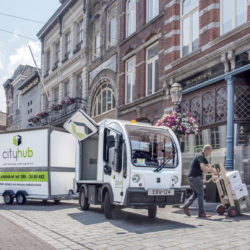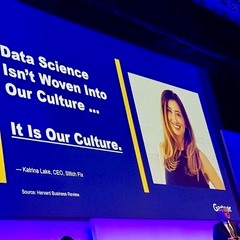British retailer John Lewis: ‘Consumers are in charge of the supply chain’

Is logistics the new retail? That’s the question according to John Munnelly, Head of Operations at UK department-store chain John Lewis, during his keynote at the Savant Supply Chain Congress on 3 October 2018 in Amsterdam. In the past, it was the norm for consumers to visit stores themselves in order to purchase products and take them home with them. Nowadays, consumers are high-tech and highly demanding customers, and same-day delivery is becoming increasingly common. This calls for supply chains to be approached and designed differently.
By Marysa Vos
During the conference, various retailers and software vendors explained how they are dealing with customer centricity, collaborative supplier partnerships and the effect of personalization on the supply chain. The market is changing rapidly, and so too are consumer expectations. Keeping pace with this rate of change means playing a different (supply-chain) game. According to Alexandra Morton, Vice President SCM Western Europe at Adidas, it is crucial to understand which path is being followed and to take a step-by-step and focused approach. It is important to be clear about what the consumer wants, she said, which is why Adidas has made this a top priority: “The changing consumer expectations drive our fulfilment model, causing us to transform our supply chain.”
Adidas looks specifically at the unique customer instead of the general demand. “Rather than same-day delivery, our consumers might consider it more important to have the flexibility to decide that they want their parcel delivered to a location of their choice the next day.”
Demand for meat substitutes
Jeroen Dekkers, Manager Supply Chain at McDonald’s, indicated that the consumer need and demand also depends on lifestyle factors. “In Europe there’s a growing demand for meat substitutes, whereas in China sales of meat are actually rising because more Chinese consumers can afford it now.” Dekkers explained that McDonald’s studies consumer needs through pilot projects: “No one knows exactly what the future holds, so you can either wait and see or experiment. We choose to do the latter.”
B2B company Hilti, a manufacturer of tools for the building trade, echoed the benefit of pilot projects: “We saw various retailers offering pick-up points and thought that could be a way to meet a need of our customers too,” said Fabrice Atallah, Head of Global Logistics Services at Hilti. However, it turned out that only a handful of customer actually used the pick-up points. Atallah emphasized the importance of not only looking at the B2C market but also of asking your own customers about their needs.
Tracing bikes
Among other things, putting the very demanding customer at the heart of your approach ensures you uphold high standards, and suppliers are expected to do that too, stated Dekkers. He added that collaborative partnerships are enabling McDonald’s to trace the origin of its products better, which improves food safety. “However, these ‘roots’ are not easy to find,” commented the supply chain manager.
Another retailer that recognizes the importance of traceability is sporting goods chain Decathlon, which works with RFID tags on 95 to 100% of its products. Mădălina Cîrstea, Supply Chain Manager at Decathlon: “It’s important that we can protect our customers. If a bike has a defect, we need to be able to trace the defective component.” Besides that, the RFID tags help to increase the efficiency in the retailer’s warehouses and stores.








